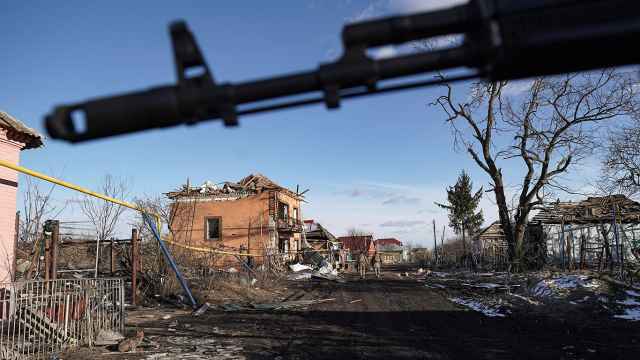Moscow Medics Battle Coronavirus On Converted Ice Rink
As Russia continues to grapple with the second wave of the coronavirus that has seen record-setting surges in new infections and deaths in recent weeks, Moscow, the pandemic’s epicenter within Russia, is on the front lines.
On Wednesday, Russia reported 20,985 new coronavirus infections — the first time in five days that cases fell below 22,000 — with Moscow accounting for 4,174 of them.
While Moscow’s daily infections still outnumber those of Russia’s regions, the capital’s modern healthcare systems are better-equipped to handle the latest surge in the pandemic than other parts of the country. Regional hospitals, meanwhile, are struggling to accommodate the surge in new infections and reports have emerged of hospitals under extreme strain, overflowing morgues, medicine shortages and more.
In an effort to ease the growing pressure on its medical system, Moscow is mobilizing to construct makeshift hospitals for treating coronavirus patients.
The Krylatskoye Ice Palace in western Moscow, once the capital’s main speed-skating rink, is now the site of one of these makeshift treatment centers. Here’s a closer look:
On Wednesday, Russia reported 20,985 new coronavirus infections — the first time in five days that cases fell below 22,000 — with Moscow accounting for 4,174 of them.
While Moscow’s daily infections still outnumber those of Russia’s regions, the capital’s modern healthcare systems are better-equipped to handle the latest surge in the pandemic than other parts of the country. Regional hospitals, meanwhile, are struggling to accommodate the surge in new infections and reports have emerged of hospitals under extreme strain, overflowing morgues, medicine shortages and more.
In an effort to ease the growing pressure on its medical system, Moscow is mobilizing to construct makeshift hospitals for treating coronavirus patients.
The Krylatskoye Ice Palace in western Moscow, once the capital’s main speed-skating rink, is now the site of one of these makeshift treatment centers. Here’s a closer look:
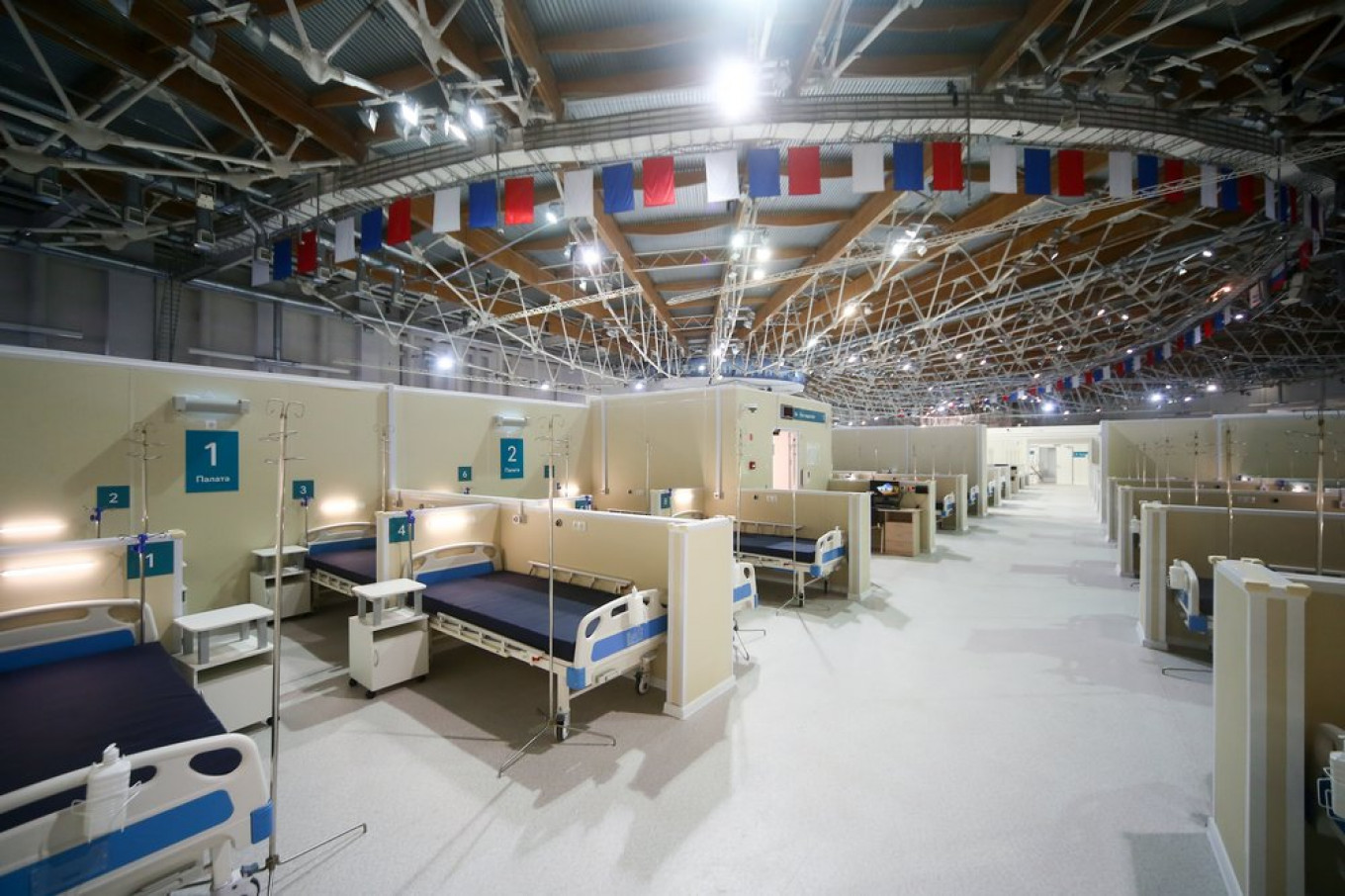
The Krylatskoe Ice Palace opened in 2004 and has since hosted championships in speed skating, bandy and tennis.
Sergei Vedyashkin / Moskva News Agency
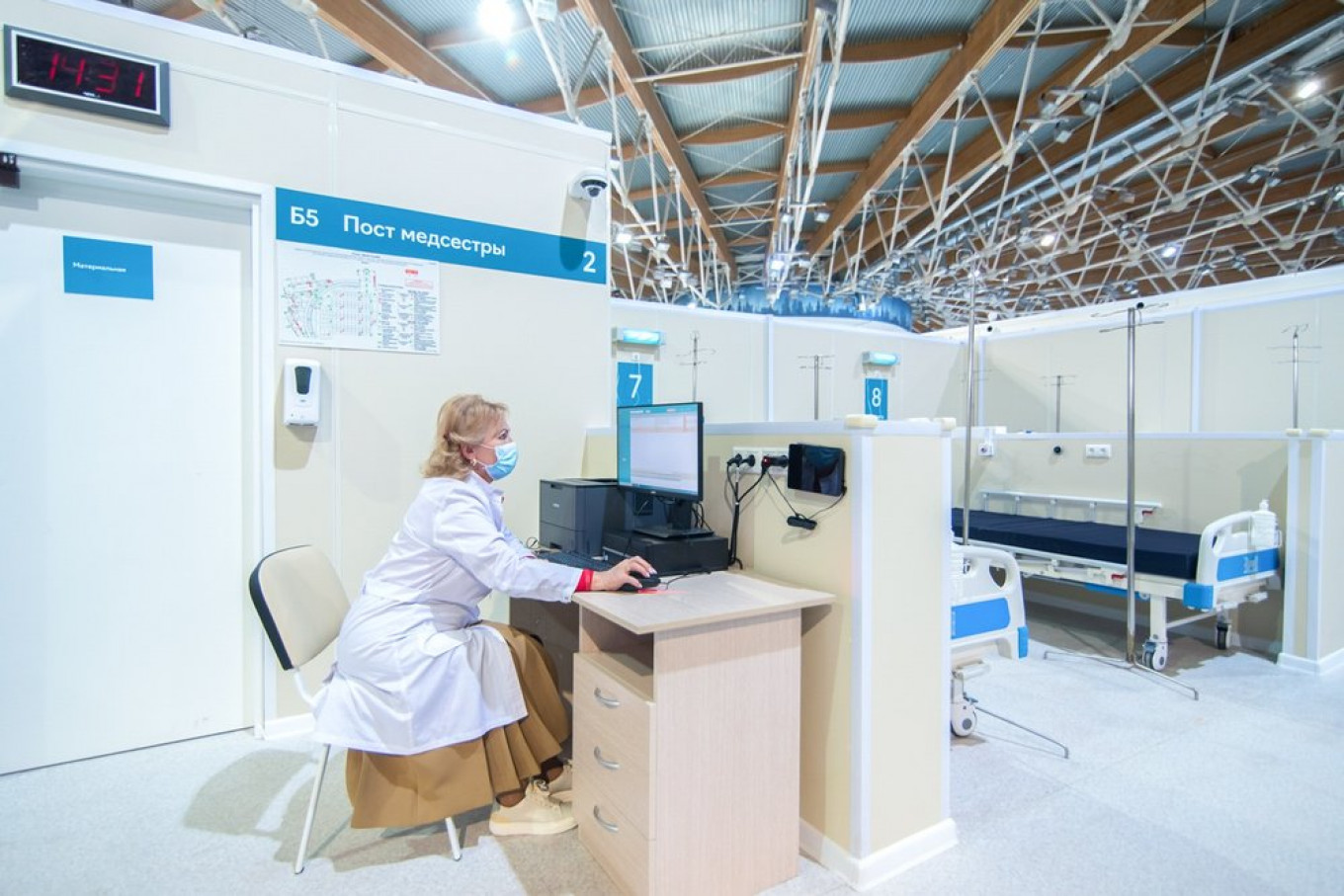
The venue now houses a fully equipped coronavirus hospital with more than 100 medical personnel hailing from both the capital and Russia's regions.
Moscow Government / Moskva News Agency
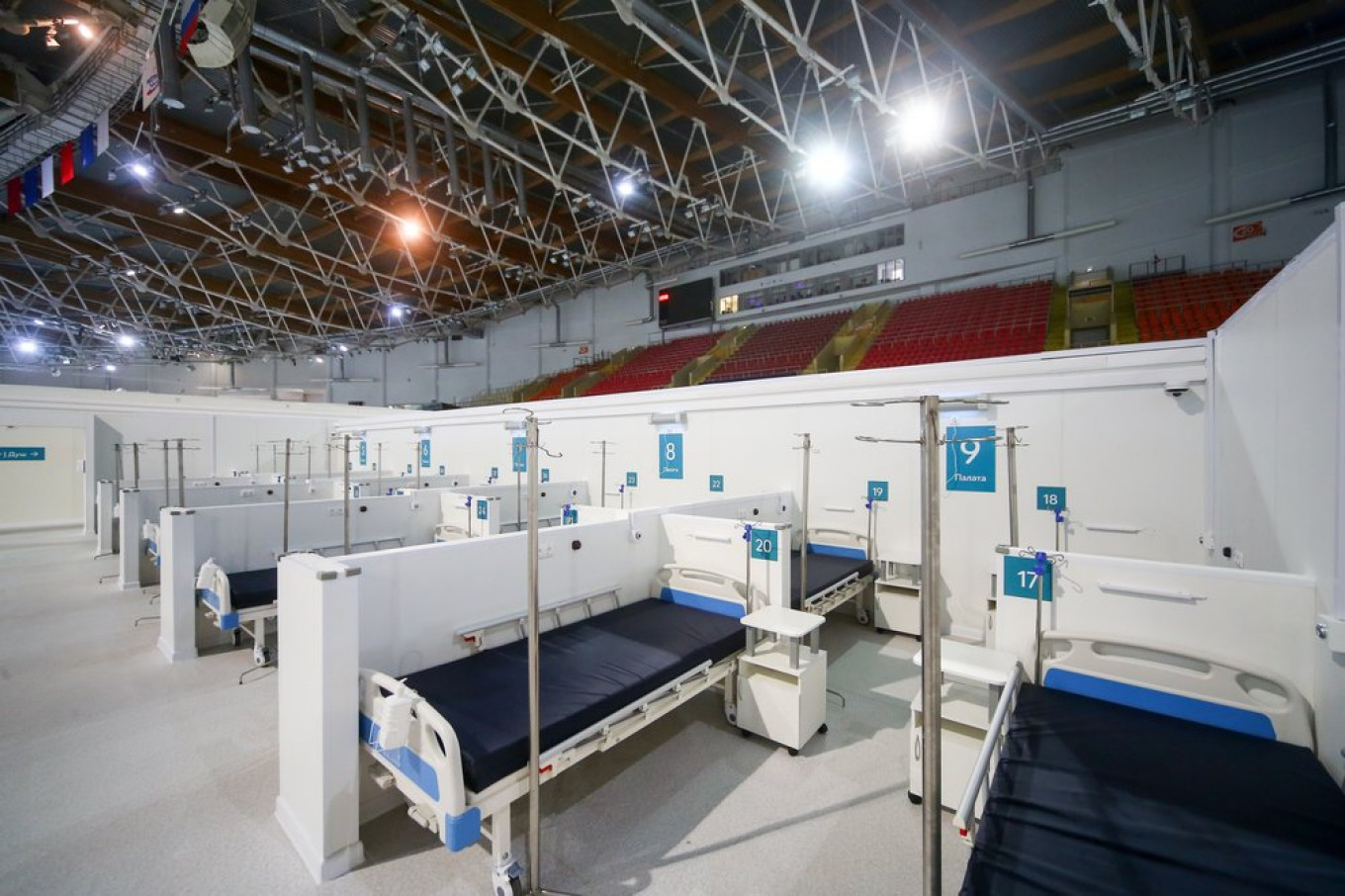
While the ice rink normally seats more than 7,200 people in its stands, there are no spectators in the fight against the coronavirus.
Sergei Vedyashkin / Moskva News Agency
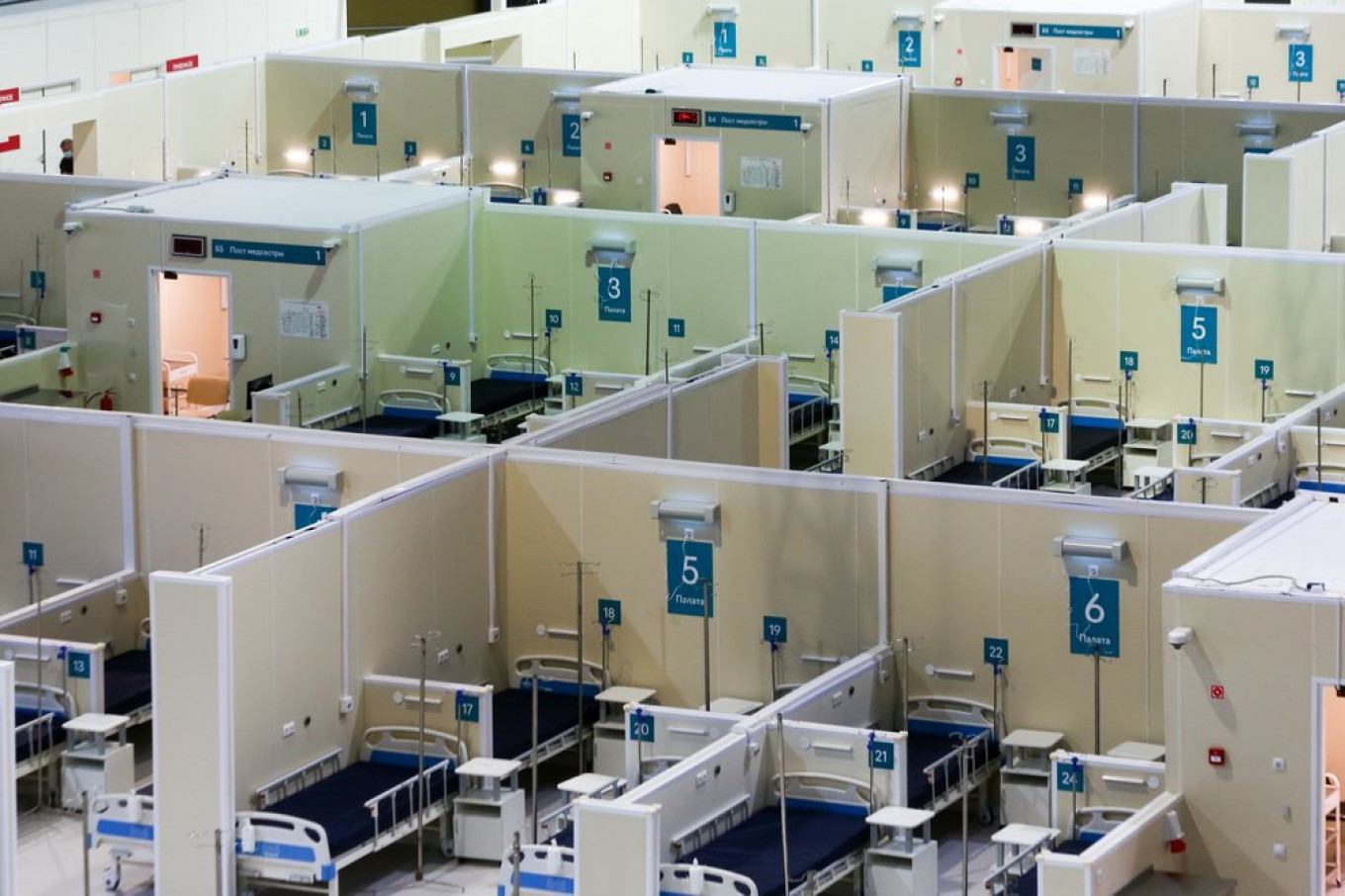
Instead, the hospital now has over 1,300 intensive care beds and 42 bed spaces for patients in critical condition.
Sergei Vedyashkin / Moskva News Agency
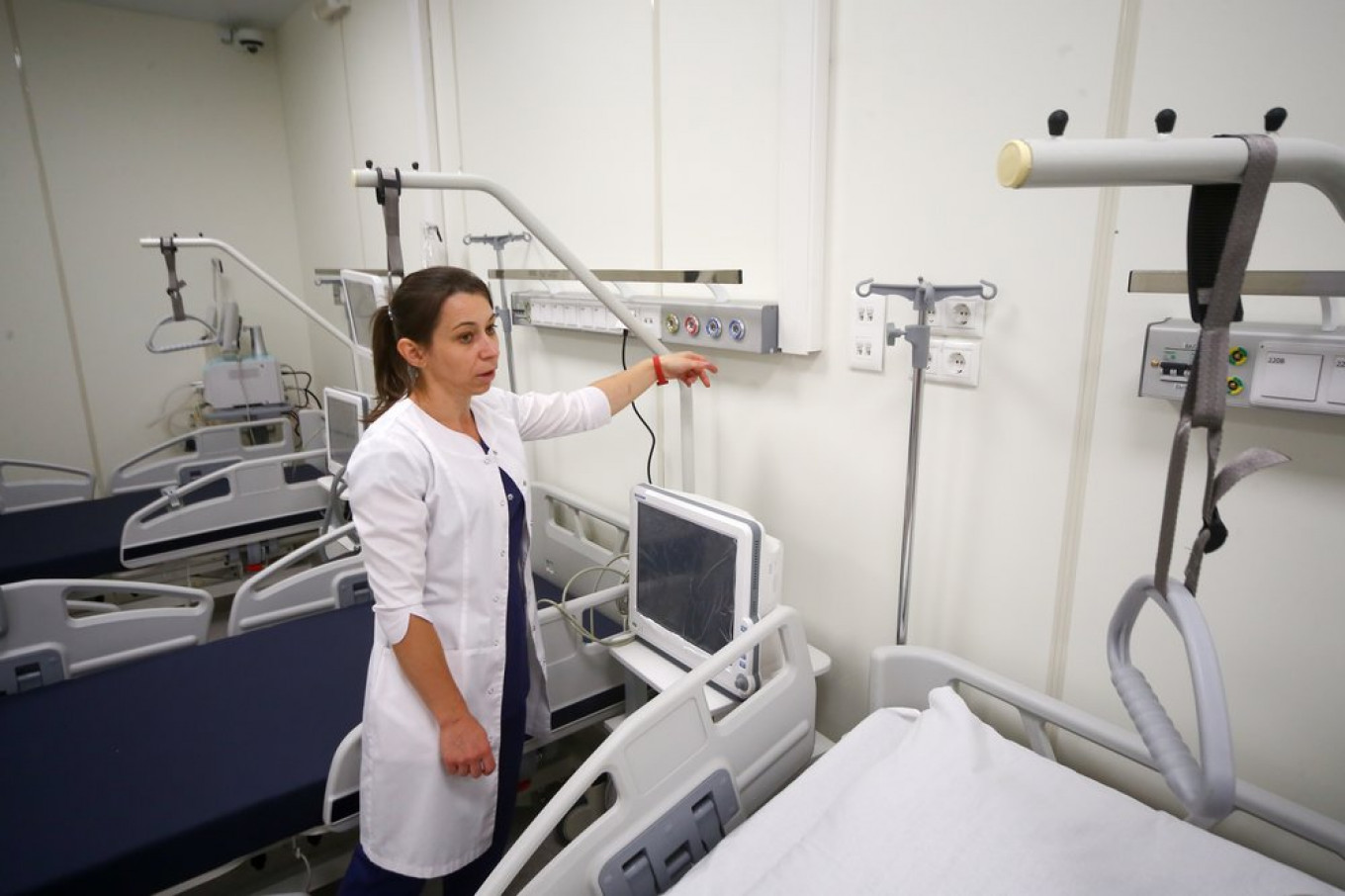
Each patient's medical history is stored in an electronic file associated with an individual QR code.
Sergei Vedyashkin / Moskva News Agency
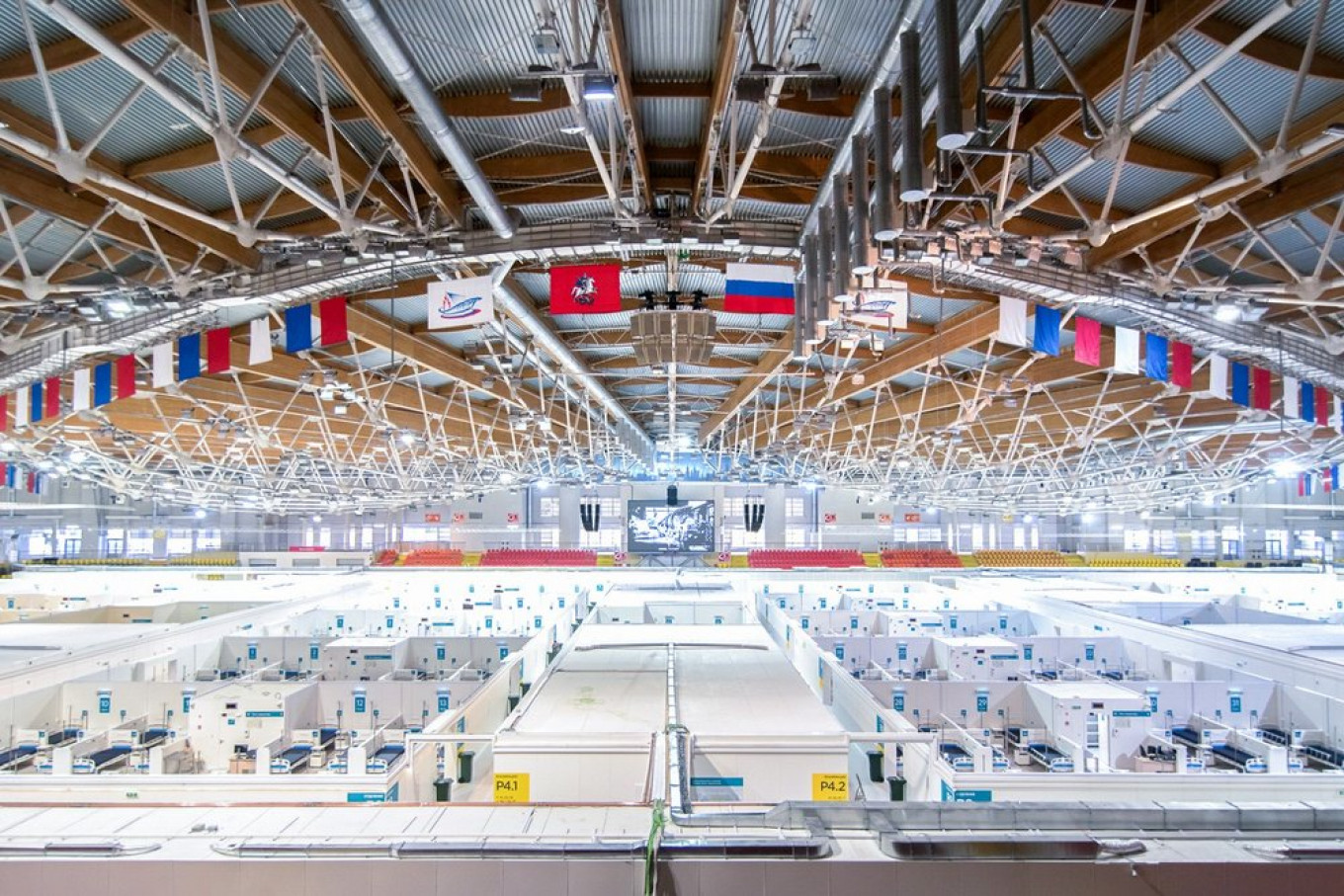
In addition to daily medical attention, patients have access to tablet computers and a high-speed Wi-Fi network to stay connected with their loved ones.
Moscow Government / Moskva News Agency



